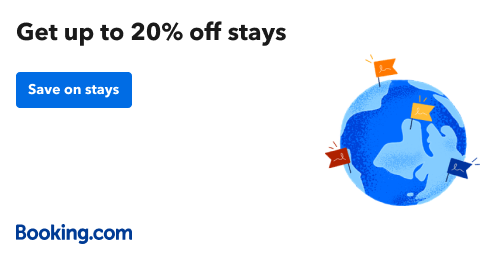
Beginner’s Guide to Essentials Like a Pro
You’re stepping into something new, and it’s easy to feel overwhelmed by where to start. But focusing on the essentials can give you a clear path forward. By understanding the basics and setting realistic goals, you’ll build confidence and avoid common mistakes. The key lies in more than just knowing what to do—it’s about how you organize your tools and habits to work smarter. Let’s explore how to get this right from the very start.
Understanding the Basics
Understanding the basics is crucial when you’re starting out. You’ll need to familiarize yourself with the fundamental concepts and tools related to your new venture. This foundation helps you avoid confusion and builds confidence.
Don’t rush; take time to absorb key terms, processes, and common challenges. When you grasp these essentials, you can make informed decisions and spot mistakes early. It also makes learning advanced skills easier, as everything connects back to these core ideas.
Be proactive—ask questions, read reliable sources, and practice regularly. Remember, mastery begins with a solid understanding of basics.
Stick to clear, simple explanations and focus on one concept at a time. This approach prevents overwhelm and sets you up for steady progress.
Setting Clear Goals
Although starting can feel overwhelming, setting clear goals gives you direction and purpose. When you define what you want to achieve, you create a roadmap that keeps you focused and motivated.
Start by identifying specific, measurable objectives that matter to you. Break larger goals into smaller, manageable steps to avoid feeling stuck. Make sure your goals are realistic and set a timeline to track your progress.
Writing them down solidifies your commitment and helps you revisit and adjust when needed. Clear goals prevent wasted effort and keep distractions at bay, making it easier to prioritize tasks.
Gathering Essential Tools
Before you dive into your tasks, gathering the essential tools ensures you have everything you need to work efficiently and confidently. Start by identifying the basic items specific to your goal—whether that’s a notebook and pen for writing, software for digital projects, or materials for crafting.
Avoid overloading yourself with unnecessary gadgets; focus on quality over quantity. Organize your tools in a dedicated space to keep them accessible and prevent distractions during your work.
Regularly check your supplies and replace or upgrade items as needed to maintain productivity. By preparing your toolkit thoughtfully, you set a solid foundation that supports your progress and minimizes interruptions, helping you tackle each step with clarity and purpose.
Developing a Consistent Routine
Once you establish a consistent routine, you’ll find it easier to stay focused and make steady progress. Start by setting specific times each day dedicated to your essential tasks. Consistency trains your mind to expect and prepare for these activities, reducing procrastination.
Keep your routine realistic; overloading yourself can lead to burnout. Prioritize tasks to tackle the most important ones when your energy is highest. Use reminders or alarms to keep yourself accountable.
Review your routine weekly to adjust what’s working and what isn’t. Sticking to this rhythm builds momentum and turns essential actions into habits. By committing to a steady schedule, you’ll maximize efficiency and gain confidence in your skills without feeling overwhelmed.
Learning From Reliable Resources
Maintaining a consistent routine helps you stay on track, but the quality of what you learn during that time matters just as much. To maximize your progress, focus on sourcing information from trustworthy, well-established resources.
Look for content created by experts with proven credentials or reputable organizations known for accuracy. Avoid unreliable sites or opinion-heavy blogs that lack evidence. Utilize books, official websites, and educational platforms that offer clear, up-to-date material.
Additionally, cross-reference multiple sources to verify facts and deepen your understanding. By prioritizing reliable resources, you ensure that your learning builds a solid foundation, setting you up for success.
Practicing Regularly and Reflecting
Although learning from reliable resources lays a strong foundation, practicing regularly is what truly cements your skills. When you make practice a habit, you reinforce knowledge and improve your confidence. Set aside dedicated time each day or week to focus on what you’re learning.
Consistency matters more than long, infrequent sessions. After practicing, take a moment to reflect: What went well? Where did you struggle? Identifying these areas helps you understand your strengths and weaknesses.
Reflection also keeps you engaged and motivated because you see your progress and can adjust your approach as needed. Remember, practice without reflection is less effective. By combining both, you build mastery faster and create a more meaningful learning experience, setting yourself up for success as you advance.
Tracking Progress and Adjusting Strategies
As you practice and reflect, you’ll want to track your progress to see how far you’ve come and where to focus next.
Keep a simple log or journal to record your achievements, challenges, and lessons learned. This helps you identify patterns and areas needing improvement.
Regularly review your notes and set specific, measurable goals based on your observations. If a strategy isn’t working, don’t hesitate to adjust it—flexibility is key to growth.
Experiment with different approaches and track their impact to find what suits you best. By consistently monitoring your progress and tweaking your methods, you’ll stay motivated and efficient.
Conclusion
By mastering the basics and setting clear goals, you’ll build a strong foundation for success. Gather the right tools and create a routine that keeps you consistent and motivated. Rely on trustworthy resources to guide your learning, and make time to practice regularly while reflecting on your progress. Keep tracking your growth and adjusting your strategies, and you’ll navigate new challenges confidently—like a true pro. Stay focused, stay committed, and enjoy the journey ahead!




